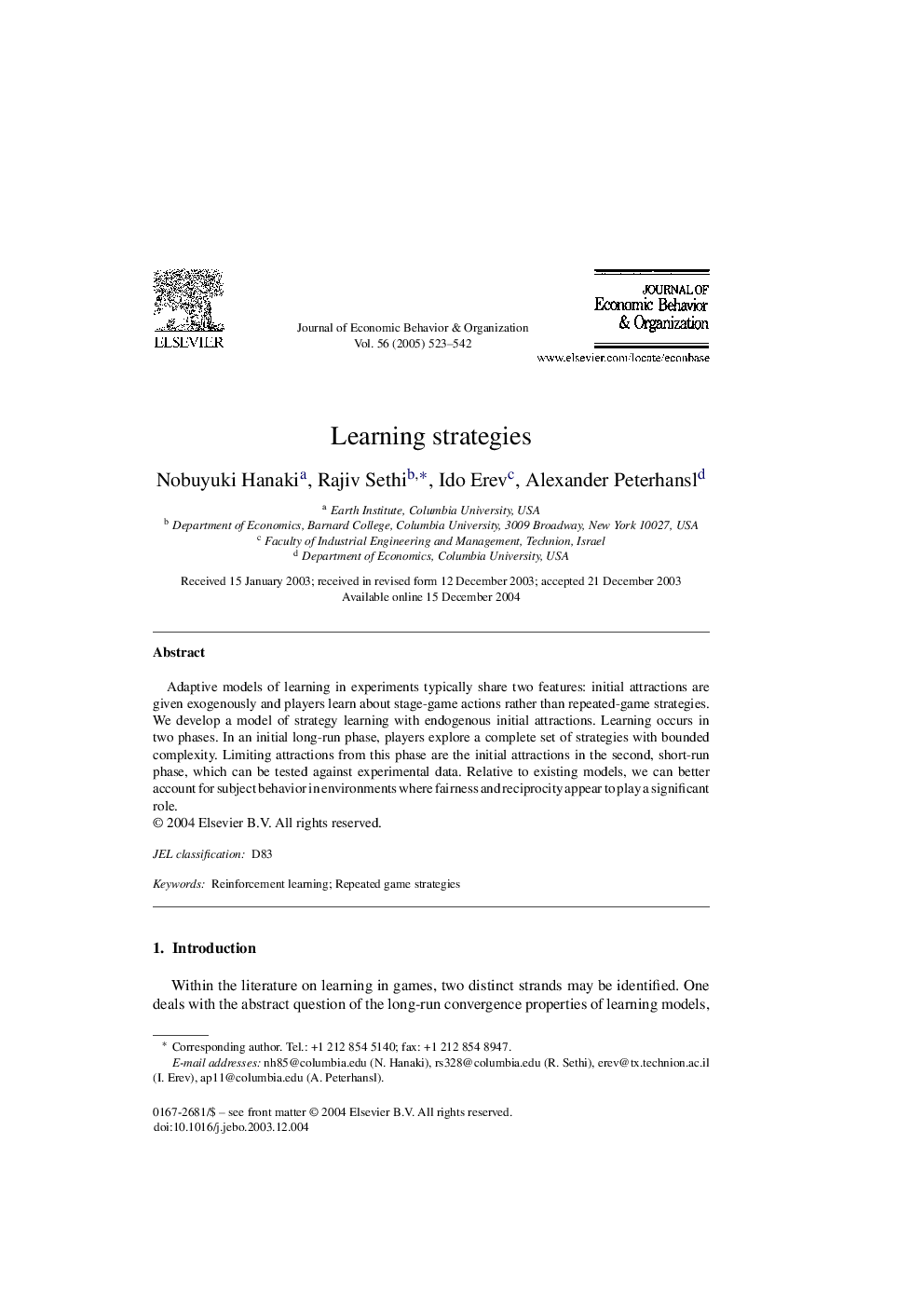| Article ID | Journal | Published Year | Pages | File Type |
|---|---|---|---|---|
| 10437830 | Journal of Economic Behavior & Organization | 2005 | 20 Pages |
Abstract
Adaptive models of learning in experiments typically share two features: initial attractions are given exogenously and players learn about stage-game actions rather than repeated-game strategies. We develop a model of strategy learning with endogenous initial attractions. Learning occurs in two phases. In an initial long-run phase, players explore a complete set of strategies with bounded complexity. Limiting attractions from this phase are the initial attractions in the second, short-run phase, which can be tested against experimental data. Relative to existing models, we can better account for subject behavior in environments where fairness and reciprocity appear to play a significant role.
Keywords
Related Topics
Social Sciences and Humanities
Economics, Econometrics and Finance
Economics and Econometrics
Authors
Nobuyuki Hanaki, Rajiv Sethi, Ido Erev, Alexander Peterhansl,
